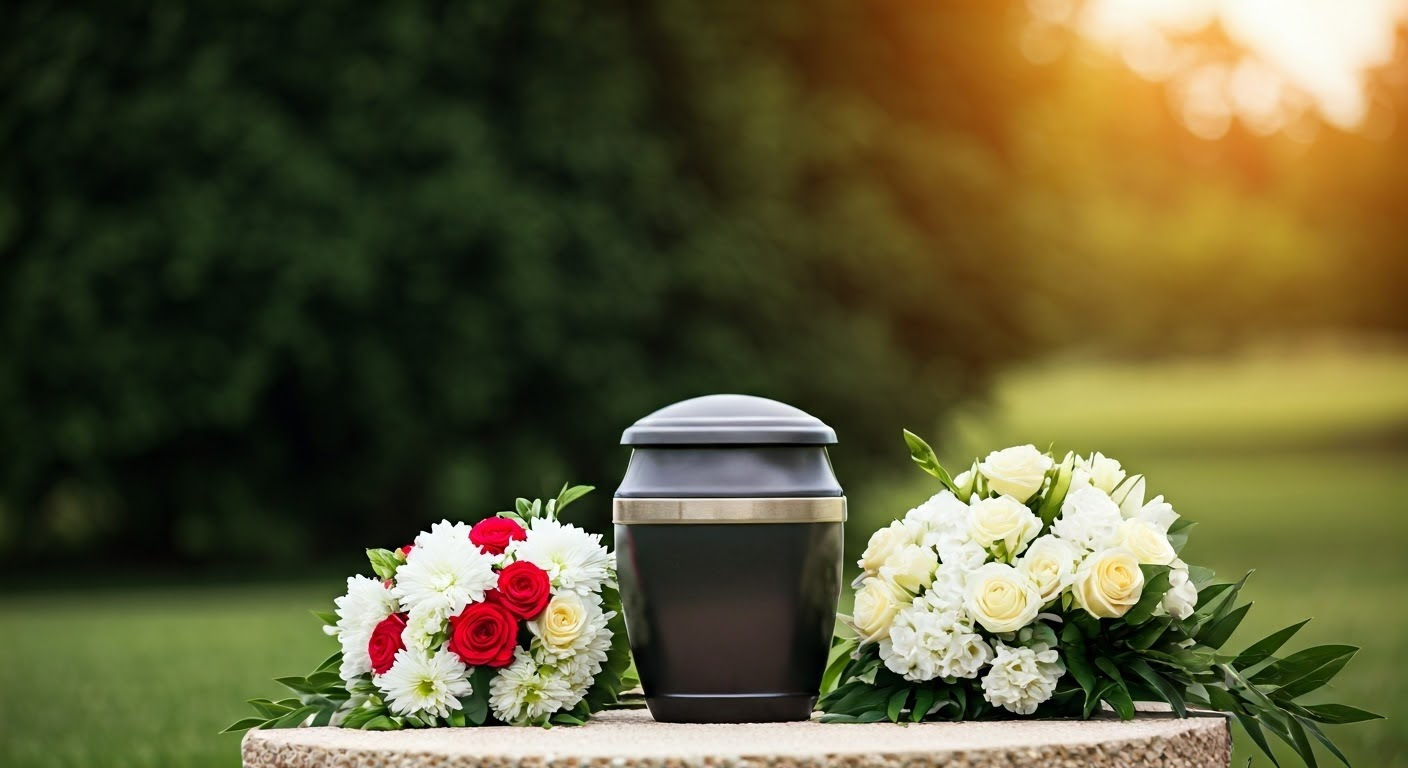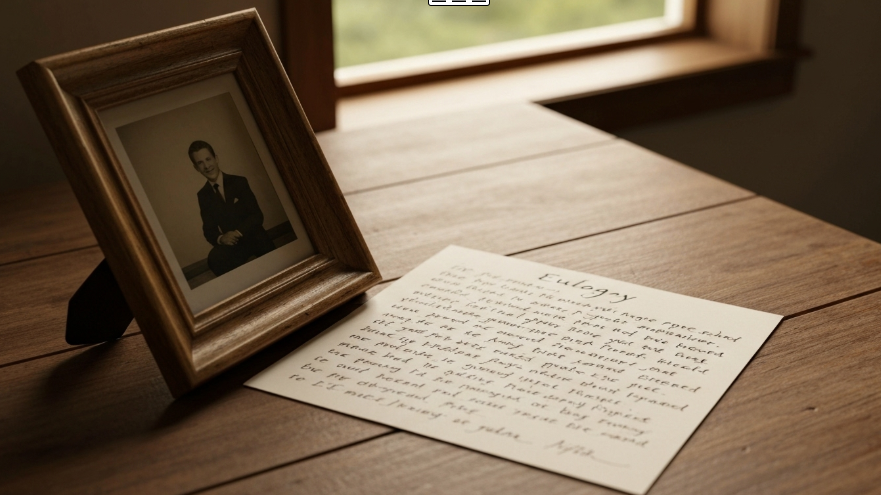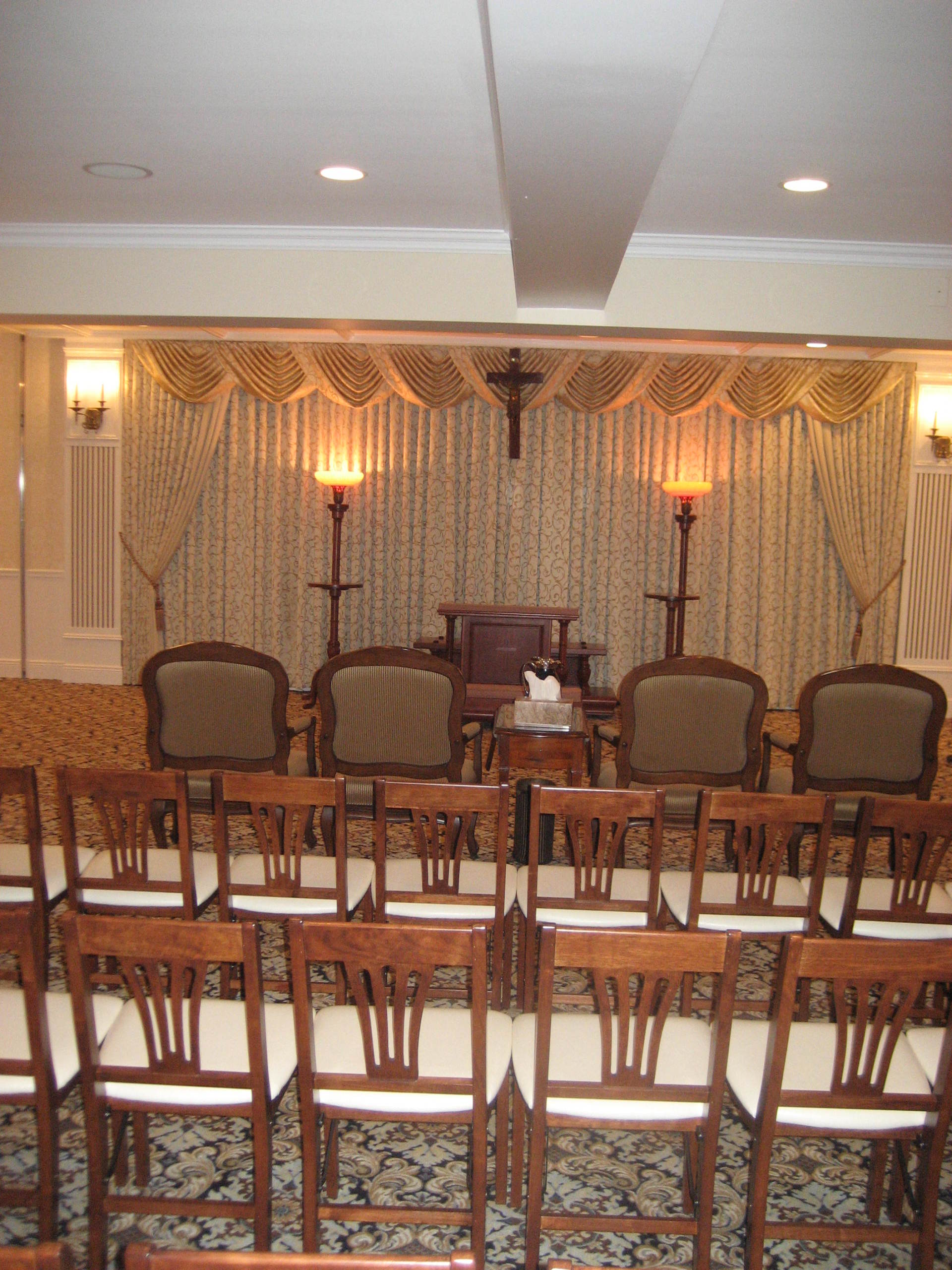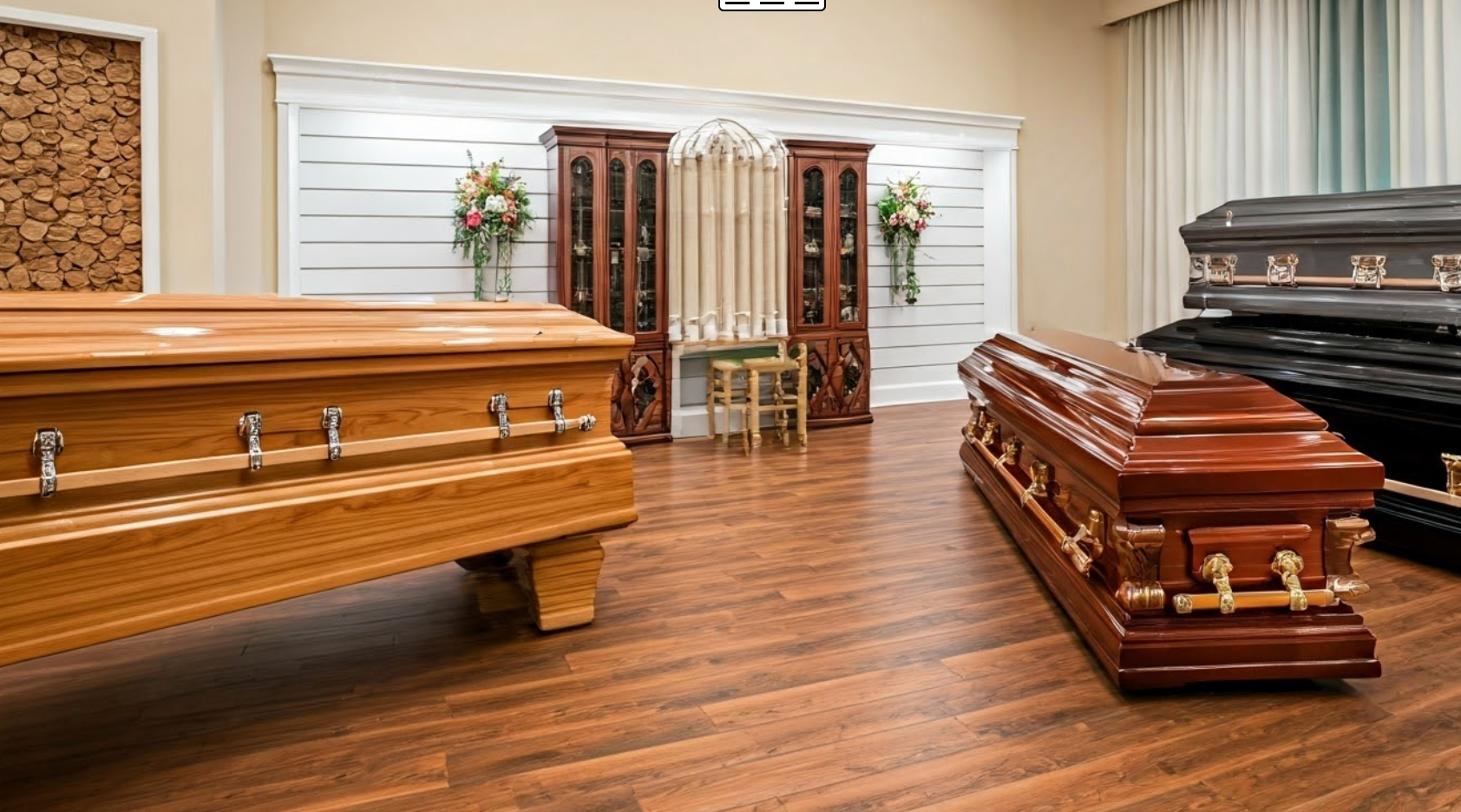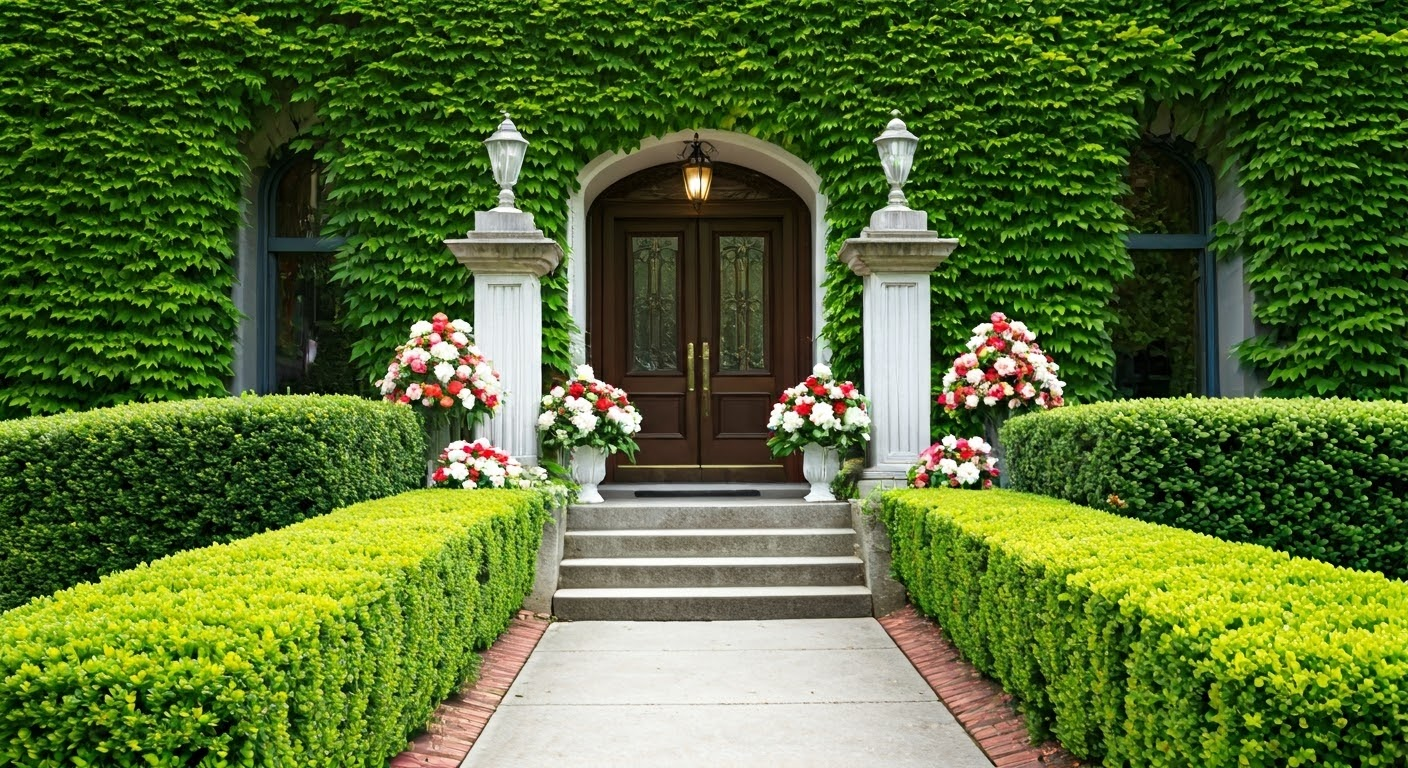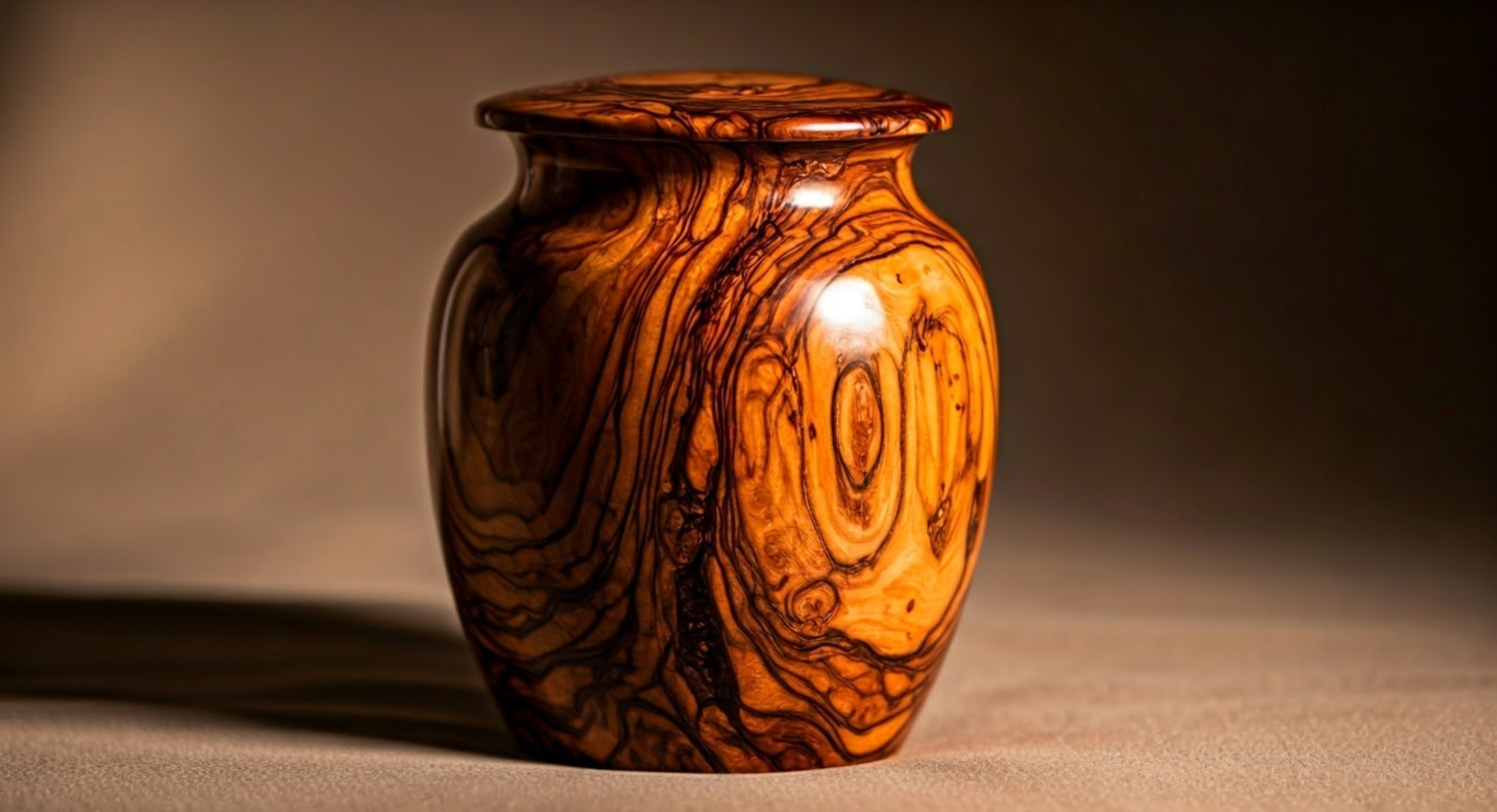Comprehensive Veteran Funeral Services Near Me: What's Included
War Veteran Funeral Services
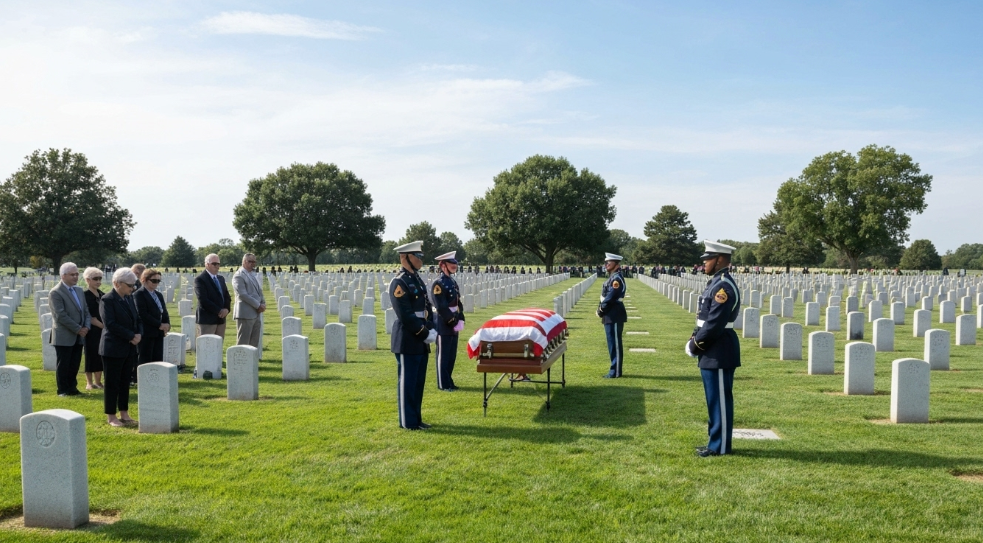
Key Highlights
- Eligible veterans are entitled to burial in a VA national cemetery at no cost to the family.
- Key benefits include a gravesite, opening and closing of the grave, a government headstone or marker, and perpetual care.
- Military funeral honors, including a flag folding ceremony and the playing of "Taps," can be requested for eligible veterans.
- Spouses and dependent children of veterans may also be eligible for burial in a national cemetery.
- Financial assistance through burial allowances may be available to help cover funeral costs.
- The veteran's discharge document, the DD Form 214, is the primary document needed to establish eligibility for these benefits.
Introduction
Honoring a veteran's service is a final tribute to their dedication and sacrifice. Understanding the comprehensive veterans funeral and burial benefits available is a crucial step for families during a time of loss. The Department of Veterans Affairs (VA) offers a range of services, including burial in a national cemetery, to ensure every eligible veteran receives a dignified farewell. This guide will walk you through what's included in these services, how to establish eligibility, and the support available for you and your family.
Understanding Veteran Funeral Services at National Cemeteries
When a veteran is laid to rest in a national cemetery, the core burial services are provided by the federal government at no cost to the family. These benefits are a way of recognizing the debt of gratitude the nation owes to the members of its Armed Forces. The process is managed by the National Cemetery Administration, a division of Veterans Affairs.
These burial services ensure a dignified and honorable final resting place. Your DD214 form is the key document that unlocks these funeral benefits, proving eligibility for burial in a VA national cemetery and other honors. The following sections will detail who qualifies for these benefits and what documents are necessary.
Eligibility Criteria: Who Qualifies for Veteran Burial Benefits?
To qualify for burial benefits, a veteran’s service record is the primary factor. The fundamental requirement is that the veteran was discharged under conditions other than dishonorable. This ensures that those who completed their military commitment with honorable service receive the recognition they earned.
For veterans whose service began after September 7, 1980 (enlisted), or October 16, 1981 (officer), there's an additional requirement. They must have served for a minimum of 24 continuous months or the full period for which they were called to active duty. This rule does not apply to those who died on active duty.
Determining a veteran's eligibility is the first step in the planning process. If you have questions about eligibility or need to arrange military funeral honors, your funeral director is an excellent resource. They can help you navigate the requirements and contact the appropriate agencies using the veteran's DD214.
Required Documents: Using the DD214 and Other Proofs of Service
Proving eligibility for military funeral honors and burial benefits hinges on proper documentation. The most important document is the DD Form 214, the Certificate of Release or Discharge from Active Duty. This single form contains all the necessary information about a veteran's service, including their character of discharge.
If the DD Form 214 is not available, don't worry. Any discharge document that shows honorable service can be used as proof. Funeral directors can work with you to request expedited military records from the National Archives and Records Administration if the original documents are lost. A copy is often sufficient to begin the process.
To ensure a smooth process, you should have the following documents ready:
- The veteran’s discharge certificate (DD Form 214 or equivalent)
- The veteran's death certificate
- Proof of payment for funeral expenses if applying for burial allowances
Key Inclusions in Veteran Funeral Services
The burial services offered at a VA national cemetery are comprehensive, designed to relieve your family of significant logistical and financial burdens. These inclusions are a core part of the nation's promise to care for its service members, even after their passing. Using a DD Form 214 to confirm eligibility allows you to access these veteran cemetery burial options.
From the physical grave and headstone to the maintenance of the grounds, the VA ensures every aspect of the interment is handled with respect and professionalism. Next, we will explore the specific details of what is provided, including the veterans marker and the grave services themselves.
Provision of Veterans Markers and Headstones
A government-provided headstone or marker is a lasting tribute to a veteran's service. When burial occurs in a national cemetery, the cemetery staff will order the appropriate marker and place it on the grave. These markers are available in various materials, including bronze, granite, and marble, to match the style of the cemetery.
If you choose a private cemetery for burial, you can still apply for a government headstone or marker. You will need to complete VA Form 40-1330, which can be obtained from your funeral director or downloaded from the VA website. The headstone is shipped at government expense, though you will be responsible for the cost of placing it on the grave. This step is crucial for claiming funeral benefits with a DD214.
The VA also allows for custom inscriptions, including symbols of belief like a Christian Cross or Star of David. To honor their service further, special medallions are available. A bronze medallion inscribed with "VETERAN" and the branch of service can be affixed to a privately purchased headstone.
Burial Vaults and Grave Opening/Closing Services
A significant benefit of burial in a national cemetery is that the opening and closing services for the grave are included at no cost. This covers the physical labor and equipment required for the interment, a cost that can be substantial in a private cemetery. This service ensures the burial process is handled with dignity and care from start to finish.
Additionally, a burial vault or grave liner is provided. This is a concrete container that encloses the casket in the grave, preventing the ground from sinking over time and protecting the casket. The provision of the vault is another major expense that is covered by the VA for burials in national cemeteries.
Your funeral home providers will coordinate directly with the national cemetery staff to schedule these burial services. This seamless coordination between funeral planners and the VA helps to reduce the stress on you and your family during a difficult time.
Financial Assistance and Allowances for Veterans' Funerals
Beyond the services provided at national cemeteries, the VA offers financial assistance to help ease the burden of funeral costs. These veterans death benefits come in the form of burial allowances, which are partial reimbursements for expenses paid by the family or another party.
To apply for these benefits, you will need to provide the veteran's DD214 and other documentation. These allowances can help cover costs associated with the funeral service, burial, and plot. Let's explore who qualifies for this assistance and how you can apply for it.
Burial Allowance: How to Apply and Qualify
To be eligible for a VA burial allowance, you must be the one who paid for the veteran’s funeral and have not been reimbursed by another source. The deceased veteran must have been discharged under conditions other than dishonorable and meet certain additional criteria. These criteria include dying from a service-related disability or receiving a VA pension at the time of death.
The amount of the allowance varies based on the circumstances of the veteran’s death. While these benefits do not typically cover the full cost of a funeral or provide a free cremation, they offer significant financial relief. You can apply by filling out VA Form 21-530, Application for Burial Benefits, and submitting it with the veteran's discharge papers and death certificate.
Here is a breakdown of the potential allowances:
Condition of Death
Burial and Funeral Allowance
Service-Related Death (on or after September 11, 2001)
Up to $2,000
Non-Service-Related Death (hospitalized by VA at time of death)
Up to $700
Non-Service-Related Death (not hospitalized by VA, but other conditions met)
Up to $300
Perpetual Care Fees and What They Cover
One of the most valuable, yet often overlooked, benefits of burial in a national cemetery is perpetual care. This service is provided at no cost to the family and is included with the interment. It ensures that the gravesite and the cemetery grounds are maintained to the highest standards forever.
What does perpetual care cover? It includes mowing the grass, pruning trees and shrubs, maintaining the headstones, and keeping the roads and walkways in good condition. This ongoing upkeep guarantees that the final resting place of your loved one will always be a beautiful and dignified memorial.
This benefit lifts a long-term financial and emotional weight from your family. Knowing that the burial costs include this permanent maintenance provides peace of mind, ensuring the site remains a place of honor for generations to come.
Military Honors and Commemorative Elements
A central part of a veteran's funeral service is the rendering of military funeral honors. This solemn ceremony is a final demonstration of respect for the veteran's military service and a poignant tribute for the family. Eligibility for these honors is established with documents like the DD214, which proves honorable service.
The Defense Department mandates that every eligible veteran receive this tribute upon request. The honors ceremony includes several key elements, from the presence of uniformed personnel to the folding and presentation of the American flag. The following sections will detail these honors and how to arrange them.
Arrangement of Military Honors and How to Request Them
Arranging military funeral honors is a process best handled by funeral planners. They have the experience and contacts to ensure the request is made correctly and fulfilled. The policy of the Department of Defense calls for funeral directors to be the primary point of contact for requesting the honors detail.
The request is made to the specific branch of service in which the veteran served. Your funeral director will use the Military Funeral Honors Directory to find the right contact. It is important to make this request as early as possible to allow the military unit time to make arrangements.
To arrange military honors, you or your funeral director should:
- Have the veteran's DD214 or other proof of honorable service ready.
- Contact the appropriate service representative listed in the Military Funeral Honors Directory. You can find this directory through your funeral director or online.
- Clearly communicate the date, time, and location of the funeral service.
Military Burial Flags and Medallions Explained
A United States burial flag is provided at no cost to honor the memory of a veteran's service. This flag is used to drape the casket or accompany the urn during the funeral service. After the service, the flag is carefully folded by the honor guard and presented to the next-of-kin as a lasting keepsake. This flag can be obtained from VA regional offices, national cemeteries, or most U.S. Post Offices.
Another way to commemorate a veteran's service is with a bronze medallion. This is particularly useful if the veteran is buried in a private cemetery with a privately purchased headstone. The medallion can be affixed to the marker, signifying the individual's status as a veteran.
These medallions are available in three sizes and are inscribed with the word "VETERAN" across the top and the veteran’s branch of service at the bottom. A separate medallion is available for Medal of Honor recipients. Your funeral planners can assist you in obtaining these commemorative items from the Defense Department.
Family Member Benefits and Inclusions
The burial benefits extended to veterans are not limited to the service member alone. The VA also recognizes the sacrifices of military families by offering burial options for family members of eligible deceased veterans. This allows families to be laid to rest together in a place of honor.
These federal benefits are a significant part of the support system for military families. Knowing that spouses and dependent children can share a final resting place with their veteran provides immense comfort. We will now look at the specifics of these burial options for your loved ones.
Burial Options for Spouses and Dependent Children
The spouses and dependent children of eligible deceased veterans may also be eligible for burial in a VA national cemetery. This means they can be interred in the same gravesite as the veteran. This benefit is available even if the spouse or child passes away before the veteran.
Eligibility for spouses is quite specific. A surviving spouse of an eligible veteran remains eligible for burial even if they remarry, as long as the subsequent marriage to a non-veteran was terminated by death or divorce. This ensures their connection to the veteran's service is honored.
For burial, the following family members are generally eligible:
- The legal spouse of the veteran.
- The veteran’s minor children (under 21 years of age).
- Unmarried adult children with a disability who were incapable of self-support before the age of 21.
Inclusion of Family Names on Headstones and Markers
When family members are buried in the same gravesite as a veteran, their information can be inscribed on the government-provided headstone or marker. This ensures that the final resting place properly commemorates all who are interred there. The inscription for the spouse or dependent child is added at the time of their passing.
This service is part of the comprehensive burial services offered by the VA. For an upright marble or granite headstone, the additional inscription is typically placed on the reverse side of the marker. For flat markers, the information is added below the veteran's inscription.
Having the names of family members together on a single headstone creates a unified memorial. It recognizes the family unit and the shared life behind the veteran's service. Your funeral director can help you coordinate with the national cemetery to ensure the inscriptions are handled correctly.
Conclusion
In closing, understanding comprehensive veteran funeral services is essential for honoring those who have served our nation. From eligibility criteria and required documentation to the key inclusions such as veterans markers, burial vaults, and military honors, being informed ensures that families can navigate this process with dignity and respect. The benefits extend not only to veterans but also to their spouses and dependent children, providing a meaningful way to commemorate their sacrifice. If you want to learn more about how to arrange these services or have specific questions, don’t hesitate to get in touch for expert guidance.
Frequently Asked Questions
Is an original DD214 required for funeral benefits, or will a copy suffice?
A copy of the DD Form 214 or another official discharge document is usually sufficient to establish eligibility for funeral benefits. If the document is lost, your funeral planners can help you request a replacement or verification letter from the National Archives to proceed.
Can a veteran receive free cremation as part of national cemetery benefits?
The VA does not directly pay for or provide free cremation services. However, the burial benefits at a national cemetery do include an in-ground gravesite or a columbarium niche for cremated remains. The burial allowance, if eligible, can be used to offset cremation costs from funeral home providers.
How do I arrange transportation benefits for a veteran’s funeral?
Transportation benefits for a veteran's remains may be available under specific conditions. Reimbursement may be provided if the death was service-related or if the veteran died while in a VA facility. Work with your funeral planners and the VA to determine eligibility at the time of need.
Learn More About Vietnam War veteran burial services.
Get a Free Consultation or Contact us Today!
Share
